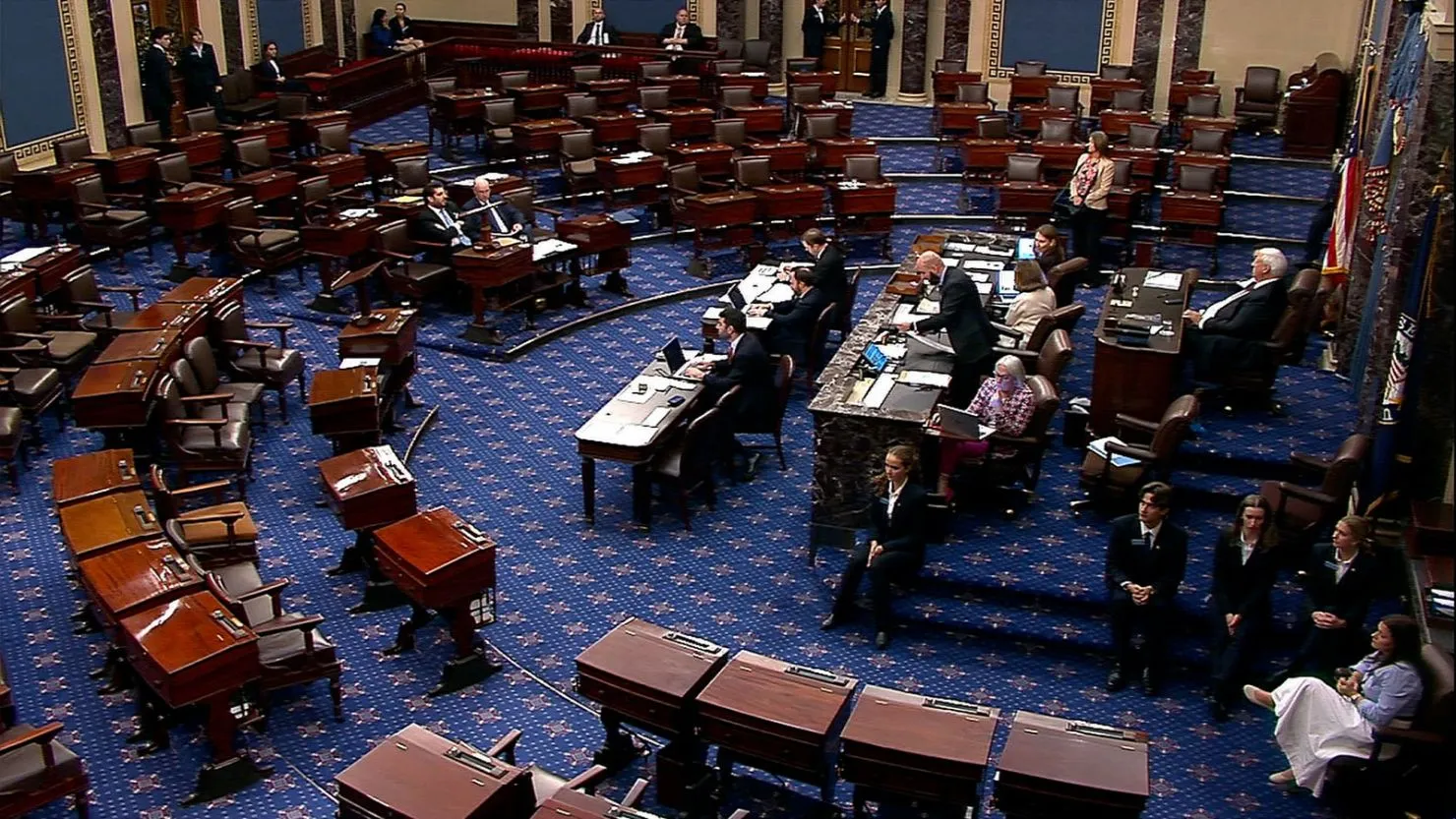Senate Approves Trump’s Cuts Package: A Closer Look
The U.S. Senate has recently approved a contentious package of budget cuts proposed by the Trump administration, targeting foreign aid programs and public broadcasting entities across the nation. The Senate’s decision comes as a crucial deadline looms, making it imperative that the House of Representatives quickly reviews and acts upon the bill.
The Proposal: What’s at Stake?
The cuts proposed by the Trump administration focus primarily on significant reductions to federal funding for foreign aid, which is designed to support various international development initiatives, humanitarian assistance, and diplomatic relations with other nations. Additionally, the package includes steep funding cuts to public broadcasting institutions, such as PBS and NPR, which have long served as vital sources of news and educational content for millions of Americans.
Foreign Aid Cuts: A Point of Contention
Foreign aid has always been a subject of debate in American politics, with advocates arguing that it is essential for maintaining national security and fostering goodwill internationally, while opponents view it as a misuse of taxpayer dollars. The Trump administration’s proposal aims to cut foreign aid by a sweeping percentage, potentially impacting initiatives that help combat poverty, disease, and conflict worldwide.
Implications of Foreign Aid Cuts
Experts warn that such drastic cuts could lead to dire consequences, particularly for countries heavily reliant on U.S. support. Eliminating foreign aid could exacerbate global issues like famine, combatting diseases like HIV/AIDS, and addressing climate change challenges. Critics argue that these funds play a necessary role not only in improving the livelihoods of citizens abroad but also in securing America’s strategic interests.
Funding For Public Broadcasting: An Important Resource
Alongside foreign aid cuts, the proposed reduction in funding for public broadcasting has drawn ire from both sides of the political aisle. Public broadcasting outlets like PBS and NPR provide educational programming, cultural content, and news coverage considered critical to nurturing an informed electorate.
The Role of Public Broadcasting
Public broadcasting serves as an indispensable resource, particularly in areas underserved by private media. The programming offered by PBS has contributed to children’s educational development while NPR has become a trusted source for national and international news. Advocates of public broadcasting argue that cutting funds not only jeopardizes content variety but diminishes the overall quality of journalism in America.
Political Reactions and Future Prospects
The Senate’s approval of the cuts package ignited a wave of reactions from politicians, advocacy groups, and constituents alike. Many Democrats expressed their outrage, decrying the cuts as detrimental to both America’s global standing and its cultural institutions. Notably, both Democrat and Republican senators voiced concerns over the implications of these funding reductions, particularly regarding how they would affect communities and educational opportunities.
House of Representatives: The Next Step
With the Senate’s approval, the bill now heads to the House of Representatives, where it will face a critical examination. House Democrats are expected to rally against the cuts, while some Republicans may express hesitance, recognizing the potential backlash from constituents who benefit from foreign aid and public broadcasting.
A Deadline Approaches
As the deadline to pass this budget package closes in, pressure mounts for the House to act quickly. Many lawmakers are aware that failure to pass the budget could lead to a government shutdown, further complicating the already tense political landscape. The next days will be pivotal in determining whether the cuts go into effect or if a bipartisan consensus can be reached to restore funding.
The Broader Message
This move by the Trump administration reflects a broader ideological belief that reducing the federal budget is essential in prioritizing domestic over international expenditures. However, this ideology is increasingly challenged by the realities of a globalized world where America’s role in international development and media integrity is more crucial than ever.
Looking Ahead
The Senate’s passage of Trump’s proposed cuts marks yet another chapter in the ongoing debate over the U.S. budget, foreign relations, and the role of public media in America. With the House set to review the bill shortly, citizens are left wondering how these changes will shape both the landscape of foreign assistance and the future of public broadcasting in the years to come.
Conclusion: The Intersection of Funding and Future
As the discussion around the Trump administration’s cuts continues, it underscores the ongoing struggle over the values we hold as a society. The decisions we make about funding—whether for international assistance or public broadcasting—speak volumes about what we value as a nation. As time expires for the House to act, American citizens and lawmakers alike must reflect deeply on the implications of these cuts and advocate for informed, balanced policies that serve the greater good.







